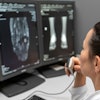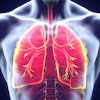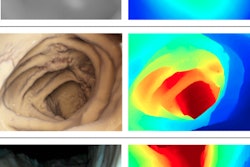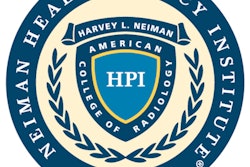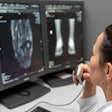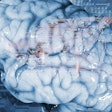Dear Artificial Intelligence Insider,
The promise of artificial intelligence (AI) in medical imaging applications continues to attract large companies outside of radiology. The latest is social networking giant Facebook, which has announced a collaboration with NYU School of Medicine to develop AI algorithms that can yield sharp reductions in MRI scanning time.
How do they plan to accomplish this worthy goal? Learn all about it in this issue's Insider Exclusive, which you can access before our regular members.
In other news, the combination of AI and a new noninvasive cardiac imaging technique shows promise for detecting coronary artery disease, yielding high sensitivity without the need for cardiac stress, contrast agents, or radiation exposure. Click here for all the details.
Researchers have concluded that using cinematically rendered CT scans may reduce the amount of data needed to train AI algorithms for medical endoscopy applications. Click here for our coverage.
An AI algorithm can serve as an effective means of triaging head CT scans for urgent review by radiologists. Click here to access our report.
AI may also be useful for optimizing the treatment of glioblastoma; an algorithm was shown to reduce dosing levels for chemotherapy and radiotherapy without affecting treatment effectiveness. You can read all about it by clicking here.
While the promise of AI for medical image analysis may generate the most publicity, AI also has considerable potential in two other key areas in radiology, according to a recent webinar by market research firm Frost & Sullivan. What are they? Click here to find out.
The global medical imaging AI market is primed for growth, according to health technology market intelligence firm Signify Research. Click here to delve deeper into the market dynamics.
By analyzing functional MRI studies, AI can distinguish patients with major depressive disorder from those who have bipolar disorder. Click here to learn more.
German researchers have found that machine learning -- at least for now -- can't do better than quantitative measurement for characterizing lesions on prostate MRI. However, an ultralow-dose CT protocol involving computer-aided detection was able to match the accuracy of standard CT for identifying lung nodules.
Furthermore, AI may be able to enhance the utility of breast conebeam CT studies, as well as speed up interpretation times on automated breast ultrasound exams.
Is there a story you'd like to see covered in the Artificial Intelligence Community? Please feel free to drop me a line.


